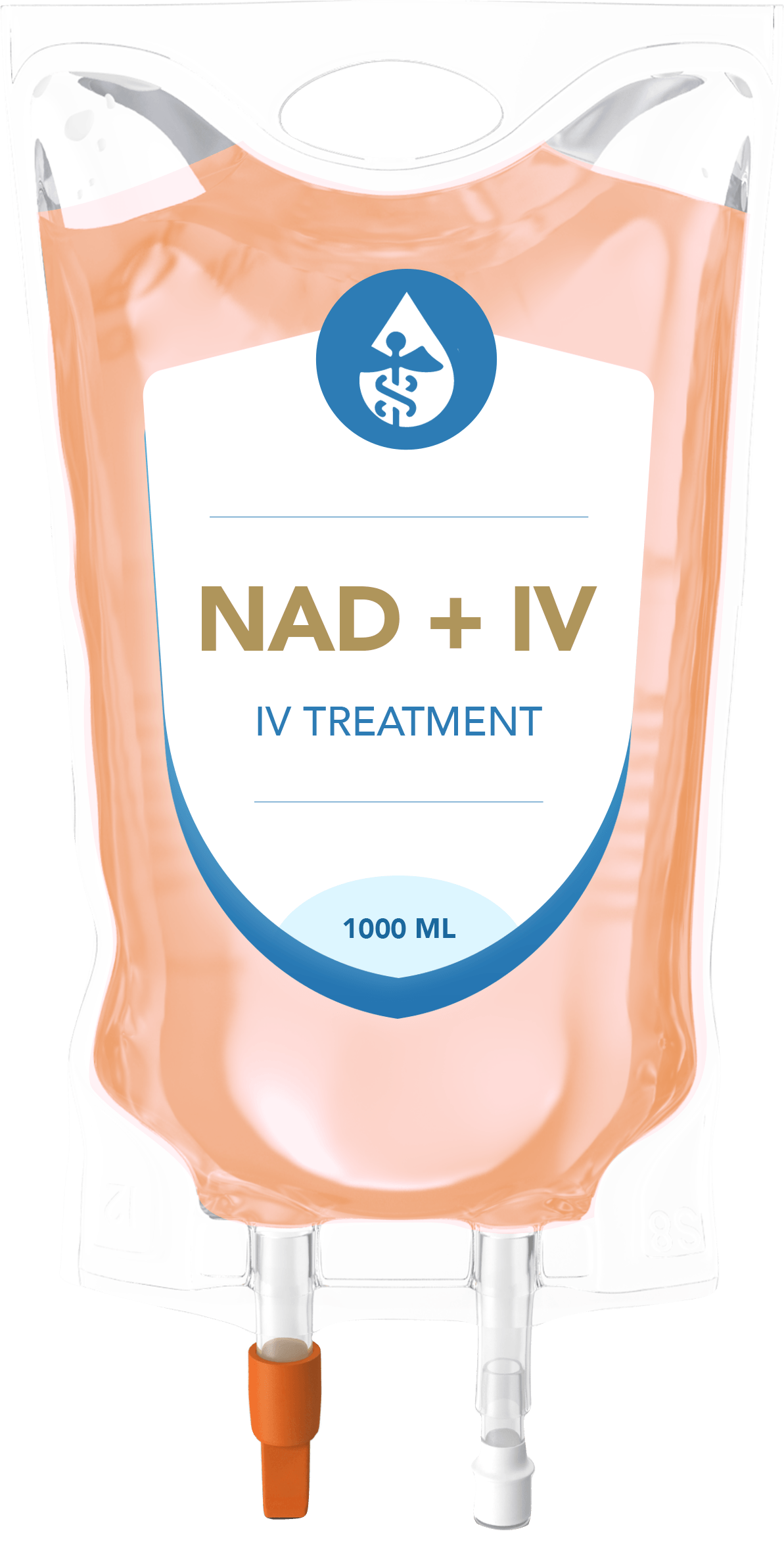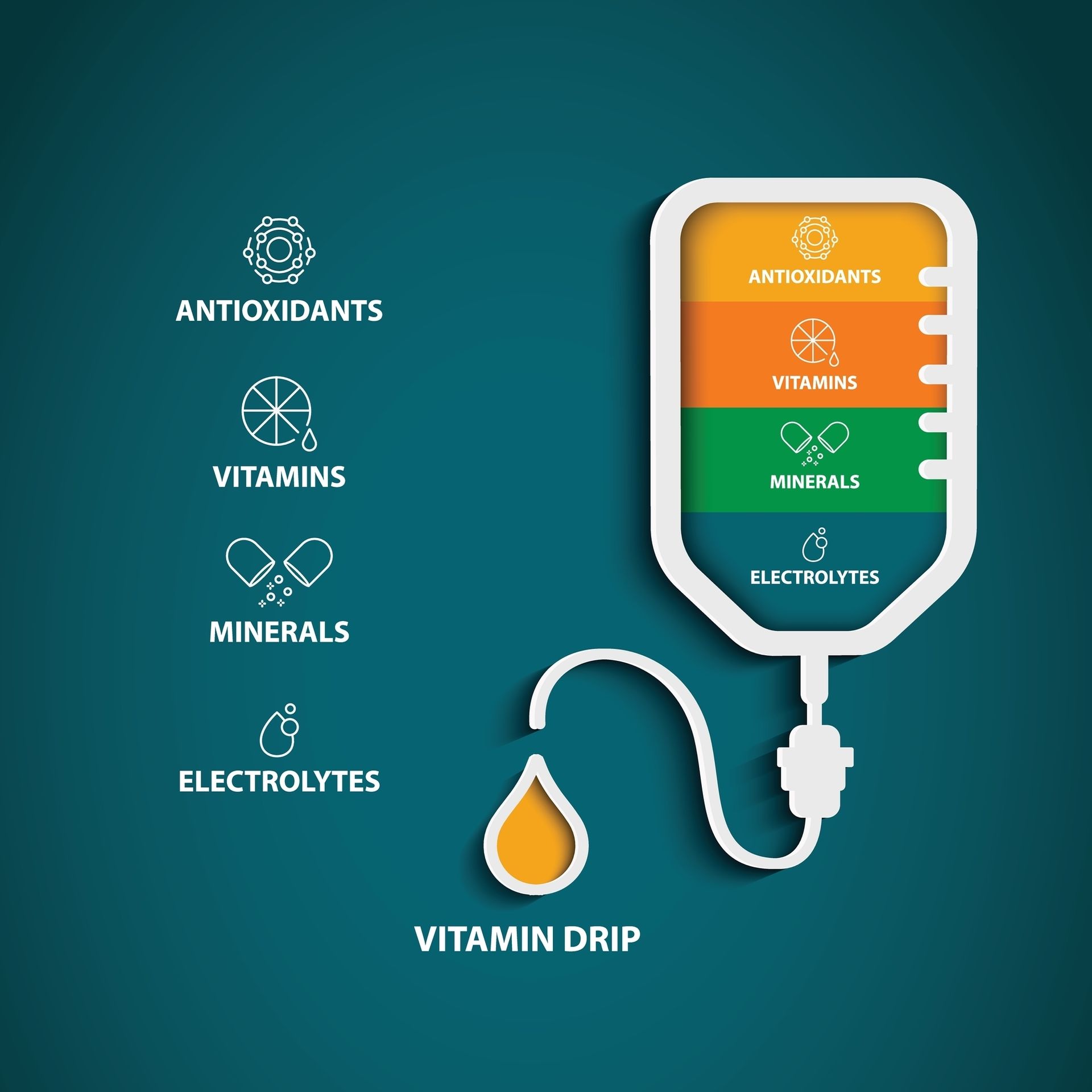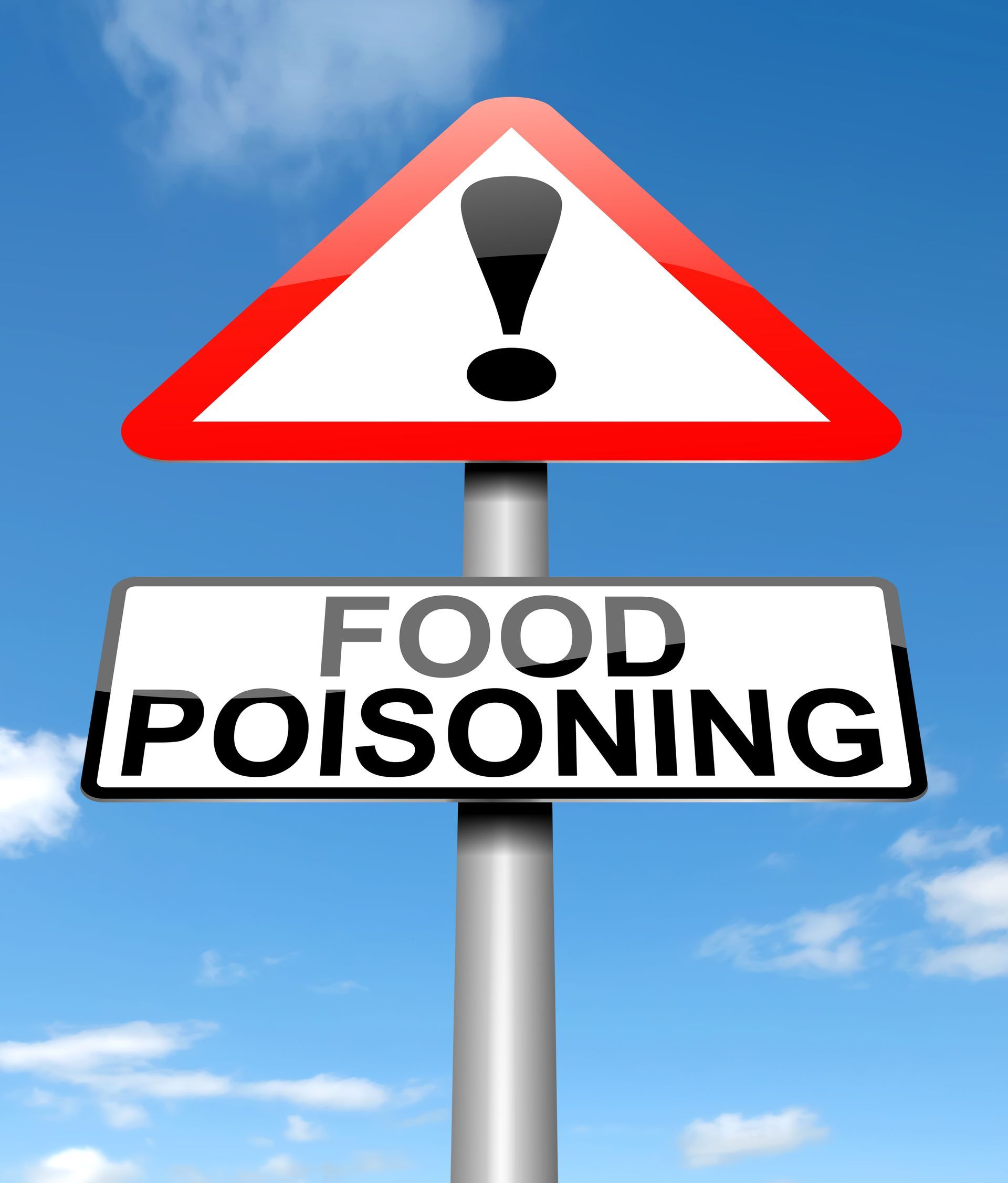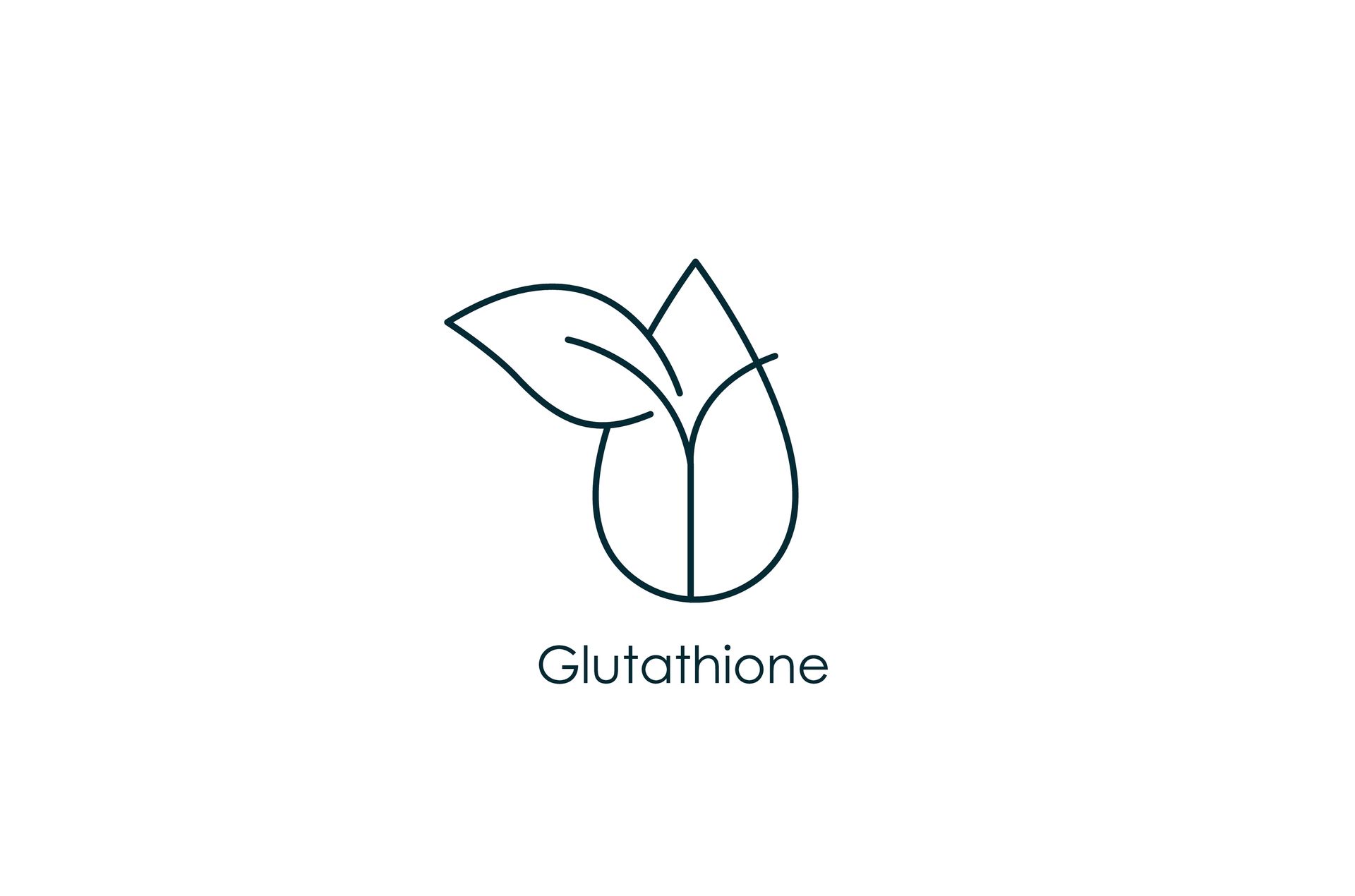Articles and Information
The Power of Vitamin C: Key Ingredient in IV Therapy for Immune Support

Understanding the Role of Vitamin C in the Human Body
The Essential Nature of Vitamin C
Vitamin C, also known as ascorbic acid, is a water-soluble vitamin crucial for various bodily functions. Unlike some animals, humans cannot synthesize vitamin C endogenously, making dietary intake essential. It plays a fundamental role in collagen synthesis, which is vital for maintaining healthy skin, cartilage, and bones.
Moreover, vitamin C acts as a powerful antioxidant, combating oxidative stress and neutralizing harmful free radicals. This protective role is critical in reducing inflammation and supporting overall health. As a cofactor for several enzymatic reactions, it's involved in the biosynthesis of neurotransmitters and the metabolism of cholesterol, reinforcing its importance in daily health management.
Vitamin C and Immune Function
One of the most noted benefits of vitamin C is its impact on the immune system. It is known to enhance the function of various immune cells, such as phagocytes and T lymphocytes, which are essential for responding to pathogens. Additionally, vitamin C increases the production of interferons, proteins that are vital for immune defense.
Regular intake of vitamin C can lead to reduced duration and severity of respiratory infections. This property has made it a popular focus in discussions about immune health, especially during cold and flu season. Its role in enhancing iron absorption also contributes to a robust immune response, as iron is a critical component of immune cell function.
The Science Behind Vitamin C as an Immune Booster
The Biochemical Mechanisms of Vitamin C
The immune-boosting properties of vitamin C stem from its ability to influence cellular responses. It promotes the differentiation and proliferation of B-cells, which are responsible for producing antibodies that counteract pathogens. Additionally, it enhances the production of cytokines, signaling molecules that mediate immune responses.
Recent studies indicate that vitamin C can also modulate the function of the innate immune system. It plays a critical role in the cellular signaling pathways that trigger the body’s defense mechanisms, ensuring a swift and effective response to infections. These biochemical mechanisms underscore why vitamin C is often recognized as a key nutrient for immune health.
Recent Research on Vitamin C and Immunity
Numerous studies have explored the link between vitamin C and immune function. For instance, researchers found that high-dose vitamin C infusions could significantly decrease the incidence of pneumonia in patients with respiratory infections. Other investigations have suggested that vitamin C might help shorten recovery times from illnesses, further validating its importance in immune support.
Moreover, clinical trials continue to support the potential role of vitamin C in preventing or mitigating the severity of viral illnesses. The ongoing research highlights the necessity of adequate vitamin C levels for maintaining a resilient immune system, especially in at-risk populations.
IV Therapy: A Modern Approach to Immune Support
The Basics of IV Therapy
IV therapy, or intravenous therapy, delivers nutrients directly into the bloodstream, ensuring immediate absorption. This method effectively bypasses the digestive system, which can frequently hinder nutrient uptake. Due to its rapid delivery, IV therapy has become increasingly popular for both medical and wellness reasons.
The procedure involves placing a small catheter into a vein, through which a customized nutrient solution can be administered. IV therapy can include a variety of vitamins, minerals, and hydration solutions tailored to individual health needs, making it a versatile option for many patients.
Why Choose IV Therapy for Vitamin C Delivery?
A key advantage of choosing IV therapy for vitamin C is the increased bioavailability it provides. When taken orally, vitamin C can sometimes cause gastrointestinal discomfort or is poorly absorbed in high doses. However, IV delivery allows for larger doses without the associated side effects.
Additionally, IV therapy can rapidly elevate blood levels of vitamin C, producing an immediate effect on the immune system. For individuals looking to boost their immunity quickly, this method can be particularly beneficial—especially during periods of increased illness risks.
The Benefits of Vitamin C IV Therapy
Rapid Absorption and Increased Bioavailability
The most significant benefit of vitamin C IV therapy is the speed at which the body can utilize the vitamin. With intravenous administration, vitamin C levels can surge quickly, optimizing its effects and enhancing immune response. This can be especially advantageous for those recovering from illnesses or undergoing medical treatments that may weaken the immune system.
Moreover, because the vitamin skips the digestive tract, patients can receive nearly all of the administered dose, maximizing the therapeutic benefits. This high absorption rate distinguishes IV therapy from traditional oral supplementation methods, making it an attractive option for many individuals seeking better health outcomes.
Potential Health Improvements and Recovery Speed
Patients receiving vitamin C through IV therapy have reported improved energy levels, enhanced mood, and quicker recovery from fatigue associated with colds and flu. This nutrient-rich infusion may also aid in healing following surgeries or injuries by supporting collagen formation and tissue repair.
As vitamin C plays a role in curbing inflammation and reducing oxidative stress, many individuals experience overall health improvements that extend beyond just immune support. The versatility of this therapy allows for enhancements in skin health, energy levels, and even mental clarity.
Safety and Considerations for Vitamin C IV Therapy
Possible Side Effects and Risks
While vitamin C IV therapy is generally considered safe, some potential side effects can arise. These may include discomfort at the injection site, flushing, or an elevated risk of developing kidney stones in individuals with a history of kidney issues. It is crucial for patients to consult healthcare professionals before beginning any IV therapy regimen.
Moreover, those with specific medical conditions, such as G6PD deficiency or chronic kidney disease, should be particularly cautious with high-dose vitamin C therapy. Adequate screening and personalized treatment plans are essential for minimizing risks.
Who Should Consider Vitamin C IV Therapy?
Vitamin C IV therapy may be beneficial for individuals experiencing frequent infections, those recovering from surgery or illness, and anyone looking to enhance their overall health. Athletes or physically active individuals may also find this therapy advantageous due to increased nutritional needs following intense training or competition.
Ultimately, vitamin C IV therapy offers a modern approach to immune support that can significantly benefit those interested in fortifying their health. With professional guidance and appropriate medical oversight, many can safely enjoy the advantages of this nutrient-rich intervention.
USEFUL LINKS
CONTACT US
If you think you may have a medical emergency, immediately call your doctor or dial 911.
This website does not provide medical advice. It is intended for informational purposes only. It is not a substitute for professional medical advice, diagnosis or treatment. Never ignore professional medical advice in seeking treatment because of something you read on the internet. These statements have not been evaluated by the Food and Drug Administration.
© 2021-2024 All Rights Reserved | Powered by OMG Marketing











